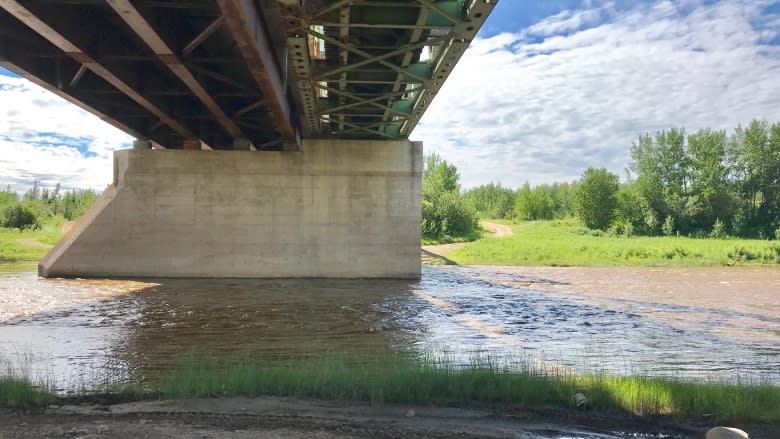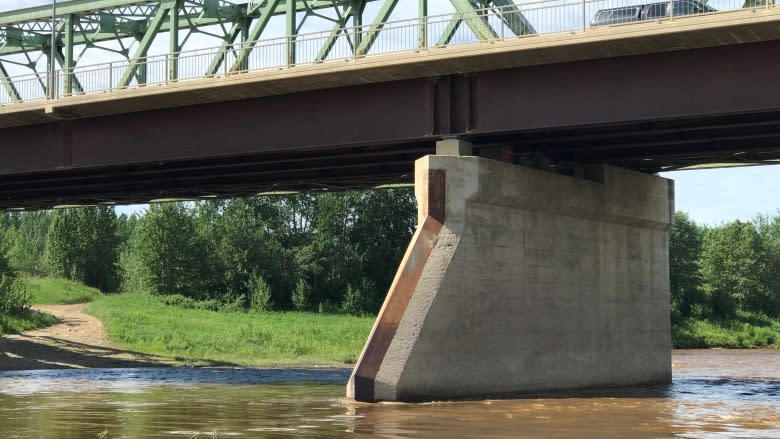Hay River running high after ample summer rainfall
Hay River's namesake is running at least a metre higher than usual during one of the rainiest summers on record.
Based on historical data, the Hay River is as much as two metres higher this month compared to recent years, but Environment Canada data also shows the river is receding.
Locals say the base of the bridge column just before where the east and west channel split is usually visible. Right now, it's underwater.
The town's Director of Protective Services, Ross Potter, said he is monitoring the river closely.
Potter would not comment on the exact height of the river, given the variables used to calculate volume and flow.
"It is definitely higher than normal," he said, adding that he'd leave the exact numbers to Environment Canada. Potter said it's too soon to speculate what the high levels could mean for flooding next spring.
Fish not biting
The high, muddy water is a source of frustration for local anglers who say walleye, also known as pickerel, are not biting like normal.
- FROM 2009 | Flood waters creep onto streets of Hay River
George Low is a retired fisheries management biologist who now monitors fish stocks for the Deh Cho First Nations on behalf of the Aboriginal Aquatic Resources and Oceans Management (AAROM).
He lives in Hay River and can see the water from his house, which is not only higher but faster and muddier.
Low has heard that anglers are frustrated by a lack of fish, and he has a couple of theories as to why.
One possibility, according to Low, is that bottom feeders like walleye are in the river, "but they just can't see the hook," because of the turbid conditions.
Another theory is that fish stocks are taking a rest.
- VIDEO | Lake whitefish from Hay River, a fishing tale that began in 1892
"There are a lot of anglers on the river, mainly fishing for walleye. So you end up with smaller and smaller fish, then you get two or three years of higher water and then when it cleans up again you get nice bigger walleye," he said.
Across the river, on the K'atlodeeche First Nation Reserve, Peter Gronen is the band's senior administrative officer.
In an email to CBC he said, "the high water is adding to the accelerated erosion problems" … but that the problem is long-standing.




